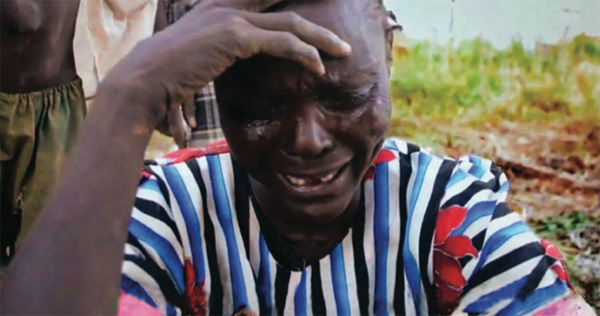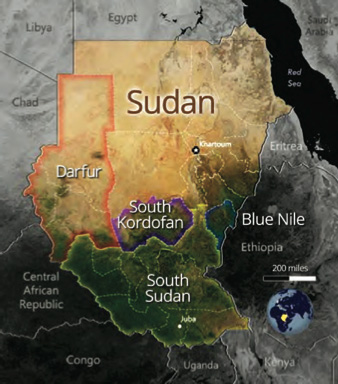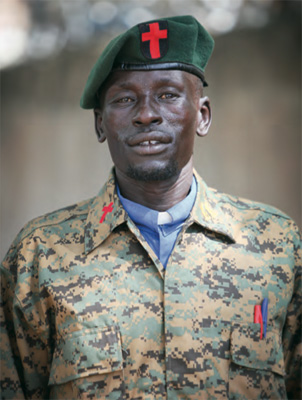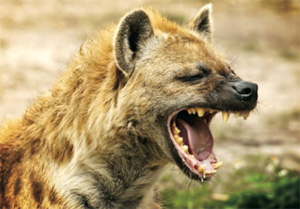
FRM Newsletter
January 2014: They Both Came for Human Blood
As I write you this newsletter, the Islamic government of northern Sudan has launched a major offensive with their armed forces into the Nuba Mountains. Intelligence reports confirmed that in the Sudan capital, Khartoum, troop and tank movement was so heavy that traffic was jammed for hours. The army has amassed tanks, artillery and men for an intensified offensive. As our nation celebrated Thanksgiving, 25,000 more civilians were forced to flee the war-torn Nuba Mountain region.
The northern government has purchased missiles with the capacity of destroying areas the size of a football field. The scorched-earth agenda practiced during the two and a half decade civil war seems to have no end in sight, as the devastation of warfare rages on. International news agencies are reporting that entire villages are being annihilated, while the world watches in silence. Front-line reports from our 75 Nubian chaplains confirmed that the fighting has been extreme.
Our chaplains face overwhelming odds against an enemy that has a formidable arsenal of missiles, helicopter gunships and fighter jets. As the reports are coming in from the front, our men are standing strong. They recognize that the weapons of our warfare are not carnal but come through the mighty hand of God. They are standing strong in the face of overwhelming odds. Upholding the Knight’s Code, they do not turn their backs on a foe or retreat when the innocent are in peril.
I met with General Jagot and asked how we could help. As we spoke, he said that the greatest need was for medical supplies. He said, “Wes, the last time you brought in medical supplies, it touched almost every family in the Nuba Mountains and saved countless lives.” To demonstrate God’s love in a very real way, we want to once again send critically needed medical supplies into the Nuba Mountains.
 When Vicky and I last visited the Nuba Mountains to deliver medical supplies, Chaplain Yohanna was there faithfully serving the people in great need. Although he is fifty years of age, he is perhaps one of the Chaplain Corp’s most physically fit men. If it’s possible for a man to have a one percent body fat composition, it would most likely be him. Like Yohanna, we could see that all the men had lost weight and were in serious need of good nutrition because of the shortage of food. Although their bodies were strong, each man needed at least twenty pounds added to his frame. It was difficult for us to witness the conditions in which they were ministering, yet they did not complain. Yohanna and the chaplains were on a mission for Christ and complaining had no place in their lives.
When Vicky and I last visited the Nuba Mountains to deliver medical supplies, Chaplain Yohanna was there faithfully serving the people in great need. Although he is fifty years of age, he is perhaps one of the Chaplain Corp’s most physically fit men. If it’s possible for a man to have a one percent body fat composition, it would most likely be him. Like Yohanna, we could see that all the men had lost weight and were in serious need of good nutrition because of the shortage of food. Although their bodies were strong, each man needed at least twenty pounds added to his frame. It was difficult for us to witness the conditions in which they were ministering, yet they did not complain. Yohanna and the chaplains were on a mission for Christ and complaining had no place in their lives.
 Yohanna’s first deployment as a chaplain was in Bentiu, in the Upper Nile region. As he went out preaching, he found that the people of the village were living under great fear of a particular hyena who was coming into their village at night. This hyena was different from others; he did not have an appetite for animals, he had a taste for human blood. Most hyenas are the size of a large dog, but this killer was reportedly the size of a small donkey. When stories are told and retold, fear and legend have a way of making things greater than they actually are. Yohanna could see that fear was consuming the people and began to pray for wisdom on how to deal with this animal.
Yohanna’s first deployment as a chaplain was in Bentiu, in the Upper Nile region. As he went out preaching, he found that the people of the village were living under great fear of a particular hyena who was coming into their village at night. This hyena was different from others; he did not have an appetite for animals, he had a taste for human blood. Most hyenas are the size of a large dog, but this killer was reportedly the size of a small donkey. When stories are told and retold, fear and legend have a way of making things greater than they actually are. Yohanna could see that fear was consuming the people and began to pray for wisdom on how to deal with this animal.
Yohanna planned to shoot and kill the hyena when it approached at night. The women of the village begged him to find another way, fearing a stray bullet could strike one of their children. He settled on a plan to trap the animal using himself as bait and agreed to use only a club to kill the hyena. He had the villagers construct a large fenced area where he would do battle with this animal.
 That night the hyena came into the village. When he saw Yohanna, he entered the enclosure for the kill. The nearby villagers closed the trap door ensuring only one of them would leave alive. Yohanna knowingly chose a situation where only one would survive. He charged the animal and grabbed him by his tail. When the hyena spun around to attack, Yohanna clubbed him on the head. Every time the hyena turned to bite him, he clubbed it again. Yohanna said that even though the battle was exhausting, the hyena’s strength failed first, making it possible for him to overcome the beast. The struggle lasted over half an hour, but finally Yohanna was able to kill the animal that sought human blood.
That night the hyena came into the village. When he saw Yohanna, he entered the enclosure for the kill. The nearby villagers closed the trap door ensuring only one of them would leave alive. Yohanna knowingly chose a situation where only one would survive. He charged the animal and grabbed him by his tail. When the hyena spun around to attack, Yohanna clubbed him on the head. Every time the hyena turned to bite him, he clubbed it again. Yohanna said that even though the battle was exhausting, the hyena’s strength failed first, making it possible for him to overcome the beast. The struggle lasted over half an hour, but finally Yohanna was able to kill the animal that sought human blood.
What makes men like Yohanna have such strength and assurance of their abilities to do battle, placing their own lives at risk? I think of David when he told King Saul that he would go and fight Goliath, the Philistine. King Saul replied, “You are not able to go out against this Philistine and fight him; you are only a young man, and he has been a warrior from his youth.” But David said to Saul, “Your servant has been keeping his father’s sheep. When a lion or a bear came and carried off a sheep from the flock, I went after it and struck it and rescued the sheep from its mouth. When it turned on me, I seized it by its hair, struck it and killed it.” Approaching Goliath, David said, “You come against me with sword and spear and javelin, but I come against you in the name of the LORD Almighty, the God of the armies of Israel…This day the LORD will deliver you into my hands.” We should never think that we can conquer anything by our own abilities. Strength and victory comes from the Lord!
It is my conviction that the Body of Christ must stand against the northern army that continues to prove that they have an ongoing thirst for human blood. We can stand in the battle with our brothers in the Nuba Mountains, like Yohanna, and answer General Jagot’s plea for critically needed medical supplies. These supplies will not only save lives but will also remind those who are suffering that they are not standing alone.
Your generous donations of $85,000, in 2012, touched almost every family in the Nuba Mountains. The more we raise, the more we can do! This is another important mission for the body of believers to come together and, “pour ourselves out for the hungry, and satisfy the desires of the afflicted.”
Until the oppressed are free,

“Is this not the fast that I have chosen: to loosen the bonds of wickedness, to undo the heavy burdens, to let the oppressed go free, and that you break every yoke? Is it not to share your bread with the hungry, and that you bring to your house the poor who are cast out; when you see the naked, that you cover him, and not hide yourself from your own flesh? Then your light shall break forth like the morning, your healing shall spring forth speedily, and your righteousness shall go before you; the glory of the LORD shall be your rear guard. Then you shall call, and the LORD will answer; you shall cry, and He will say, ‘Here I am.’ If you take away the yoke from your midst, the pointing of the finger, and speaking wickedness, if you extend your soul to the hungry and satisfy the afflicted soul, then your light shall dawn in the darkness, and your darkness shall be as the noonday. The LORD will guide you continually, and satisfy your soul in drought, and strengthen your bones; you shall be like a watered garden, and like a spring of water, whose waters do not fail. Those from among you shall build the old waste places; you shall raise up the foundations of many generations; and you shall be called the Repairer of the Breach, The Restorer of Streets to Dwell In.” – Isaiah 58:6-12